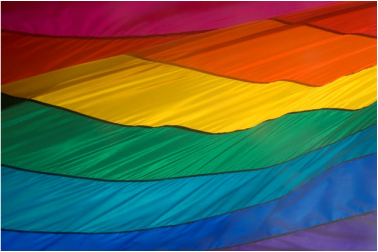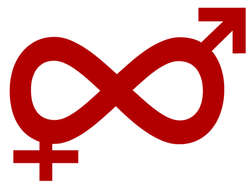It was an honour to be involved in the development of this important document as "subject specialist".
The guidelines can be downloaded for free from the PsySSA Website.
| Jonathan Bosworth Counselling Psychologist Johannesburg |
|
|
After a number of years in the making the Psychological Society of South Africa (PsySSA) has released Practice Guidelines For Psychology Professionals Working With Sexually And Gender-Diverse People. These are the first of their kind in South Africa and hold the potential to make a massive difference to many people's lives.
It was an honour to be involved in the development of this important document as "subject specialist". The guidelines can be downloaded for free from the PsySSA Website.
0 Comments
We have identified a need for more collaboration and support for mental healthcare professionals working with transgender, intersex and gender-variant individuals. We would like to invite interested parties to our upcoming meeting to:
DATE: Wednesday 19 February 2014 VENUE : The Family and Child Therapy Centre, 22 First Avenue, Melville (next door to the Melville Animal Clinic) TIME: 19h15 for 19h30 RSVP TO: Jonathan Bosworth on [email protected] or 083 703 5121 by Wednesday 12 February Kind Regards Jonathan Bosworth (Counselling Psychologist), Claire Jaynes (Counselling Psychologist), and Fred Walter (Clinical Psychologist)  Sexual orientation and gender identity are still a controversial topics in South African schools. Lesbian, gay, bisexual, transgender and intersex (LGBTI) youth, teachers and parents still face prejudice and discrimination on a daily basis. Many parents and teachers find it difficult to provide education on sexual orientation and gender identity. They may also battle to provide support for LGBTI youth. Furthermore, learners often do not have access to adequate resources on sexual orientation and gender identity. Gay and Lesbian Memory in Action (GALA) have recently launched a website providing resources for LGBTI youth, their parents, teachers and allies as well as for researchers. These free and valuable resources provide accessible overviews of sexual orientation and gender identity. They make recommendations about best practices, policy and education and empower learners, parents and teachers with the information they need. Find these highly recommended sexual orientation and gender identity resources here.  Friday 17 May is International Day Against Homophobia and Transphobia (IDAHO). The following video from the United Nations (UN) Human Rights Office outlines some of the difficulties that lesbian, gay, bisexual and transgender (LGBT) persons across the globe face on a daily basis: A clear message from the above video is that LGBT rights are human rights. In South Africa we have a progressive constitution in which LGBT rights are protected by law. The following table (courtesy of Wikipedia) outlines lesbian, gay and bisexual rights in South Africa: The following pamphlet (courtesy of Gender DynamiX) discusses the South African legistlation that allows transgender and gender non-conforming people in South Africa to change their gender and name on their ID documents without undergoing sexual re-assignment surgery: However, despite this progressive legislation many LGBTI persons in South Africa still face discrimination, hate speech and hate crimes. In other words many LGBTI people are still not free or equal. The 17th of May is a day to sit with what this means and to take action. On Friday, various South African NGOs will be uniting to fight homophobia and transphobia - click here for their press release and programme.
 What is intersex? Are 'male' and 'female' the only sexes? What defines sex: genitals, hormones, chromosomes, something else? Can you be intersex without knowing it? Is the surgical alteration of ambiguous genitalia in infancy a form genital mutilation? What is it like to be a parent of an intersex child in a gender-binary focussed society? What are some of the experiences of intersex persons? The existence of multiple sexes has great implication for the way we conceptualise sex and gender as well as for the lived everyday experiences of 'sexed' persons. The following BBC documentary explores some of the above questions: |
Jonathan's BlogI use this blog to post links to articles and videos that may relate to some of my services or interests. This content may also be useful for potential clients as well as other people interested in psychology and self development. Archives
July 2021
Categories
All
|